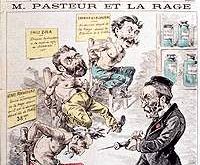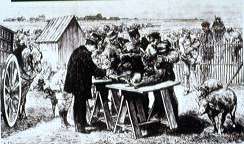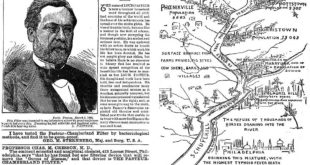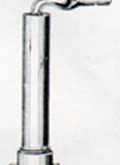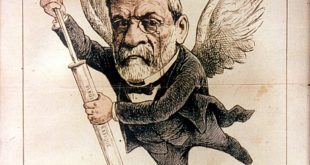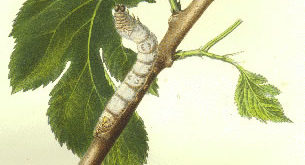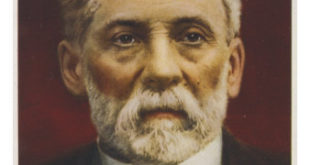May 30,1881. — The Academy may remember that we began the study of hydrophobia in the month of December last, assisted by Messrs. Chaniberland and Boux, whom M. Thuillier kindly joined. By comparing the external symptoms of that malady with certain microscopical observations made on the brains of persons or animals who had died of hydrophobia, and by considering that …
Read More »Articles
Pasteur’s Communications on Rabies: No. 1
January 24, 1881. — On a New Malady produced by the Saliva of a Child who died of Rabies. Note by M. L. Pasteur, with the Collaboration of Messrs. Chamberland and Roux. This note deals with the experiments undertaken with the saliva of the child who died in Mr. Lannelongue’s ward. This saliva, injected into dogs and rabbits, gave rise …
Read More »Summary Report of the Experiments Conducted at Pouilly-le-Fort, Near Melun, on the Anthrax Vaccination
by Louis Pasteur (with the Collaboration of Mr. Chamberland and Mr. Roux) Originially published in the Comptes Rendus de l’Academie des Science 92:1378-1383, June 13, 1881. In a lecture which I presented to the Academy last February 28, the purpose of which was to discover a method for preparation of attenuated anthrax, I spoke on behalf of myself and my …
Read More »Philadelphia Water Troubles at an End
The Schuylkill River Water made Pure, Healthful and Clear as Crystal, and FREE FROM ALL GERMS OF TYPHOID FEVER, CHOLERA, CHOLERA INFANTUM, DIPTHERIA, Etc., by being Purified through the ONLY Germ-Proof Filter in the World — THE PASTEUR GERM-PROOF WATER FILTER The name of Louis Pasteur is now a familiar household word throughout all civilized countries of the world and …
Read More »The Chamberland Pasteur Filter
GOLD MEDAL, HEALTH EXHIBITION, 1884 The Chamberland and Pasteur Filter is the joint production of the celebrated Professor Pasteur and his co-worker Dr. Chamberland, originally for the express purpose of eliminating disease germs and absolutely purifying waters used by them in Dr. Pasteur’s experiments. The method of filtration is through specially prepared porcelain tubes used chiefly under pressure. No impurities …
Read More »Paster, Germ Theory and Hydrophobia
This article is an excerpt of Gibson’s larger work, “The Wonders of Scientific Discovery.” It has been remarked in the preceding chapter that in the mind of the general public it is in connection with hydrophobia that the name of Pasteur is best known. The year before Pasteur’s discovery there were sixty-seven deaths from hydrophobia in Great Britain alone. In …
Read More »Hydrophobia: An Account of M. Pasteur’s System (Chapter 1)
A SHORT DESCRIPTION OF HYDROPHOBIA FROM THE EARLIEST TIMES DOWN TO THE END OF 1880 Seven years ago, in 1880, rabies or hydrophobia had already been known, dreaded, and studied, in Europe, for more than 2,000 years. Countless authors had written upon it, beginning, so far we can ascertain, with Democritus in the fifth century B.C., down to and including …
Read More »Louis Pasteur, Fermentation and Beer Quality
“In 1876, Louis Pasteur brought beer forward by describing the basis for fermentation that beer was fermented not by chemicals but by microorganisms–that is, yeast. He noted that bacteria, mold, and wild yeast were often responsible for the sour beer that plagued France and other countries. With this new understanding, he and other scientists began to refine techniques that could …
Read More »Bacteria in Relation to Plant Diseases
An excerpt from Bacteria in Relation to Plant Diseases, published in 1905 Among the multitude of workers in animal pathology and bacteriology during the last thirty-five years certain men tower far above the rest, their contributions to science having been more conspicuous and their imprint on their generation more lasting. If France is mentioned, we think at once of Pasteur, …
Read More »Predatory Leadership & Louis Pasteur – What is The Connection?
Originally published on the Predatory Leadership Blog on December 7, 2008 and re-produced here with the author’s permission. Lack of awareness of the global impact of predatory leaders today is akin to the lack of understanding of the causes of disease prior the research and discoveries of Pasteur, Lister and Koch. Until then, doctors knew nothing about bacteria, virus and …
Read More » Pasteur Brewing Louis Pasteur – Science, Health, and Brewing
Pasteur Brewing Louis Pasteur – Science, Health, and Brewing 
